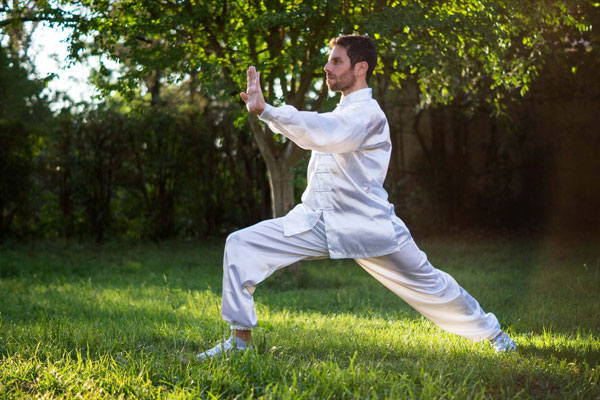Martial Arts Near Me
Tai Chi
Tai Chi, also known as Taiji, is an ancient Chinese martial art that embodies a unique philosophy and has gained popularity worldwide. This art form combines graceful movements, deep breathing, and mental focus to cultivate the practitioner's physical, mental, and spiritual well-being. Tai Chi's rich history, diverse techniques, and increasing global recognition highlight its significant impact on individuals and societies.
Originating in ancient China, the exact roots of Tai Chi are obscure and somewhat shrouded in mystery. Legend suggests that it was developed by a Taoist monk named Zhang Sanfeng during the 12th century. According to the story, a crane and a snake inspired Zhang’s creation of Tai Chi. These animals symbolize the balance of Yin and Yang, the two opposite forces that exist within the universe and in all living beings. Zhang's observations of nature's harmonious flow and balance led to the development of a martial art that would reflect these principles.
The philosophy underlying Tai Chi is deeply rooted in Chinese Taoism, whose core principle is the concept of harmony and balance. It emphasizes the continuous interaction and interconnectedness of opposing forces, such as light and darkness, softness and hardness, movement and stillness. The aim of Tai Chi is to bring harmony and balance to one's body, mind, and spirit, promoting overall well-being and longevity.

Tai Chi is renowned for its graceful and slow movements, known as forms or sequences. These forms consist of a series of postures and transitions that are performed in a flowing and relaxed manner. The movements are focused and precise, requiring concentration and awareness of body alignment. There are various Tai Chi styles, each with its own distinctive hand and body movements. Some of the well-known styles include Chen, Yang, Wu, Sun, and Hao.
The health benefits of practicing Tai Chi are well-documented and have contributed to its widespread popularity. Numerous scientific studies have indicated that regular Tai Chi practice can improve physical fitness, flexibility, balance, and muscular strength. It has been shown to reduce stress levels, promote relaxation, and improve mental well-being. For these reasons, Tai Chi is often recommended as a complementary therapy for chronic conditions such as arthritis, hypertension, and mental health disorders.
Furthermore, Tai Chi benefits extend beyond the individual level. It promotes a sense of community and fosters social connections among practitioners. Tai Chi groups frequently gather in parks, community centers, and other public spaces, offering a supportive environment for individuals to learn and practice together. This communal aspect of Tai Chi creates a sense of belonging and provides opportunities for social interaction, combatting feelings of isolation and loneliness.
In recent years, Tai Chi has gained recognition and popularity on a global scale. Its profound influence on health and well-being has captured the interest of people from diverse backgrounds and cultures. The peaceful and non-competitive nature of Tai Chi makes it accessible to people of all ages and physical abilities, contributing to its universal appeal.
Tai Chi has also become an established field of research, with scientists investigating its therapeutic potentials in various areas. Researchers are exploring Tai Chi's effects on chronic pain management, cognitive functioning, cardiovascular health, and rehabilitation. The growing body of evidence is contributing to the integration of Tai Chi into mainstream healthcare practices, both in terms of prevention and treatment.
Tai Chi, with its rich history, diverse techniques, and expanding global recognition, continues to make a significant impact on individuals and societies. Its ancient roots in Chinese philosophy, emphasis on harmony and balance, and numerous health benefits have made it a popular choice for individuals seeking physical, mental, and spiritual well-being. As research continues to unravel the therapeutic potential of Tai Chi, its role in promoting overall health and its integration into healthcare practices are likely to continue evolving in the future.